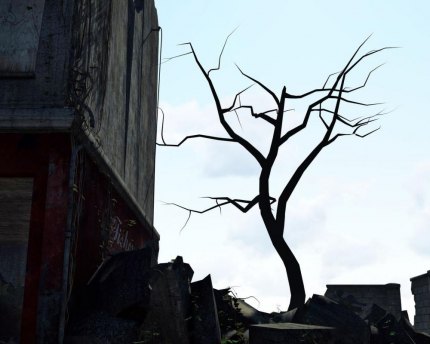Nuclear war's impact on humanity

The world saw weapons of mass destruction in action as World War II ended in 1945. But how would a modern nuclear war impact humanity? Here is a compressed account, along with links for further study:
The immediate blast: First off, there's the event itself. "Nuclear explosions produce air-blast effects similar to those produced by conventional explosives. The shock wave can directly injure humans by rupturing eardrums or lungs or by hurling people at high speed," according to a report, Effects of Nuclear Earth-Penetrator and Other Weapons on the National Academies of Sciences, Engineering and Medicine website. "But most casualties occur because of collapsing structures and flying debris."
The fallout: What is fallout? After a nuclear bomb or reactor blows up, radioactive particles spread throughout the atmosphere.
"Fallout is most dangerous in the first few hours after the detonation when it is giving off the highest levels of radiation," according to the website Ready.gov. "It takes time for fallout to arrive back to ground level, often more than 15 minutes for areas outside of the immediate blast damage zones."
It goes south from there: "Unlike conventional explosions, a single nuclear explosion can generate an intense pulse of thermal radiation that can start fires and burn skin over large areas," the National Academies of Sciences website reports. "Acute effects include radiation sickness or death resulting from high doses of radiation ... delivered over a few days. The principal latent effect is cancer."
No picnic for the survivors: They will have to face a nuclear winter. This refers to "the environmental devastation that certain scientists contend would probably result from the hundreds of nuclear explosions in a nuclear war," according to the Encyclopedia Britannica online.Scientist speculate that "large amounts of dust kicked up into the atmosphere by nuclear explosions might block sunlight from reaching the Earth’s surface, leading to a temporary cooling of the air."
But how would that affect humans? "An exchange involving just 50 nuclear weapons — the kind of thing we might see in an India-Pakistan war, for example — could loft 5 billion kilograms of smoke, soot and dust high into the stratosphere," said Paul N. Edwards, the William J. Perry Fellow in International Security at the Freeman Spogli Institute for International Studies, Stanford University, in an article on the school's website. "That’s enough to cool the entire planet by about 2 degrees Fahrenheit (1.25 degrees Celsius) — about where we were during the Little Ice Age of the 17th century. Growing seasons could be shortened enough to create really significant food shortages."
Resources:
- Arms Control Today:The Humanitarian Consequences of Nuclear War, by Ira Helfand, November 2013.
- Encyclopedia Britannica online: Nuclear Winter.
- Forbes magazine: Even a Small Nuclear War Would Still have Effects on a Global Scale, by David Bressan, Aug. 12, 2017.
- Jstor Daily: The environmental impact of nuclear war, by James MacDonald, Aug. 26, 2017.
- National Research Council: 2005. Effects of Nuclear Earth-Penetrator and Other Weapons. Washington, DC: The National Academies Press. https://doi.org/10.17226/11282; Chapter 6, Human and Environmental Effects.
- Ready.gov: Nuclear Explosion.
- Stanford Institute for International Studies: How nuclear war would affect the world climate and human health, by Nicole Feldman.
Related:
Study questions bomb's long-term impact
Report: 1950s nuclear plans released
Like us on Facebook and tell us what you think.

